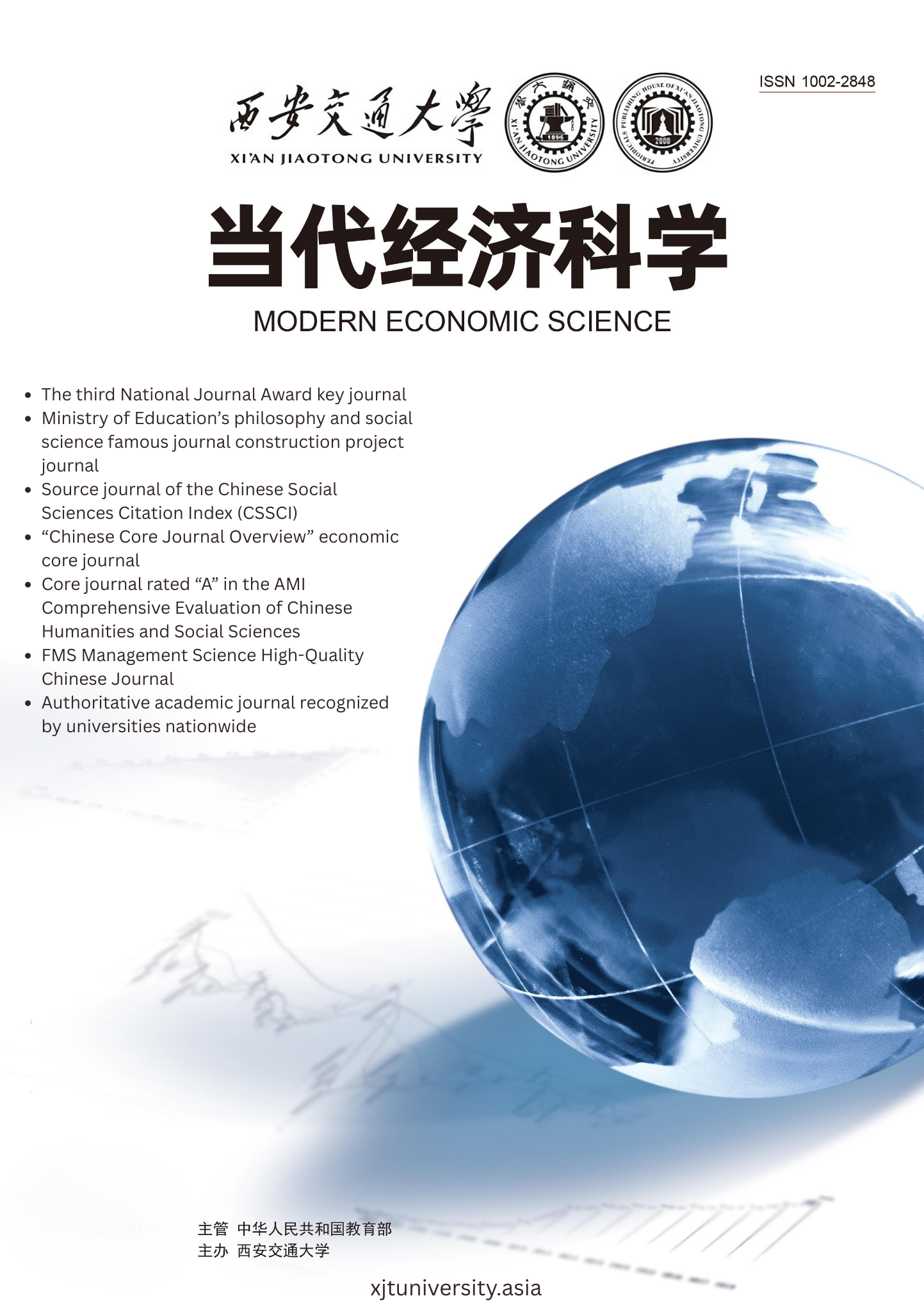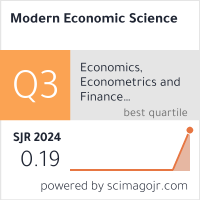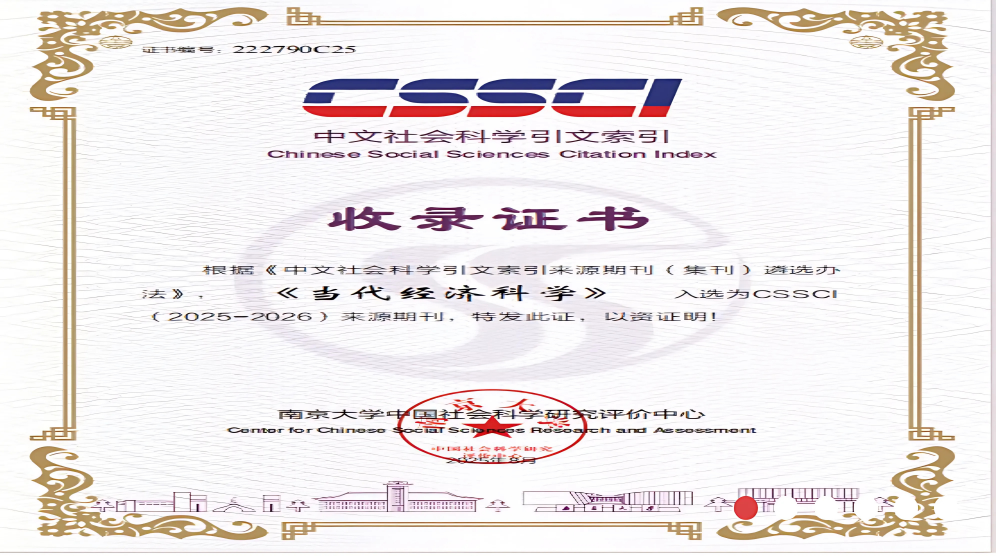How Does Firm Digitalization Affect Innovation Risk? —Empirical Research from Chinese Manufacturing Firms
DOI:
https://doi.org/10.20069/p4d9jf54Keywords:
firm digitalization, innovation risk, cost uncertainty, process reshaping, organization reengineeringAbstract
In the era of digitalization, firms face an increasingly complex external environment, accompanied by a constant rise in the cost of innovation projects. Consequently, the risk associated with firm innovation is on the ascent. This paper empirically investigates the impact and heterogeneity of firm digitalization on innovation risk, focusing on process reshaping and organization reengineering. Utilizing an unbalanced panel structure comprising data from 2,124 unique manufacturing firms spanning the years 2011 to 2020, with 13,546 firm-year observations, our analysis reveals the following findings:
Firm digitalization exhibits a discernible U-shaped influence on innovation risk. Specifically, when firm digitalization falls below the inflection point, it mitigates innovation risk; conversely, when firm digitalization surpasses this inflection point, it amplifies innovation risk. This suggests that excessive digitization may escalate innovation risk by necessitating costly adjustments due to routine updates. This conclusion withstands various robustness tests, including the instrumental variable method, alternative measurement indicators, and model adjustments.
Heterogeneity analysis demonstrates that the U-shaped influence of firm digitalization on innovation risk is more pronounced in non-state-owned, small and medium-sized, central and western firms, and firms with a low degree of marketization. This phenomenon is closely linked to firms’ inability to accommodate the cost adjustments required by practice updates, owing to limited internal resources and external support. Mechanism analysis indicates that firm digitization’s nonlinear U-shaped effect on innovation risk is driven by the combined action of two mechanisms: the expense rate during the sales period and the operating cost rate.
The research findings of this paper offer valuable insights for accurately assessing the innovation impact of real firm digitalization, while furnishing empirical evidence to advance the integration of the real economy with the digital economy. Presently, firm digitalization remains in an exploratory phase characterized by high uncertainty. Beyond investing in hardware and software systems, firms must prioritize addressing coordination and governance challenges in digitalization. Neglecting aspects such as manpower training and supportive investments can lead to increased costs. Thus, firms must recognize that digitization is a gradual process and not an overnight endeavor. Moreover, the government should align with the digital economy’s development trajectory by incentivizing firms to pursue digitalization and creating an enabling environment for their endeavors. Additionally, tailored and differentiated digitalization-related policies should be implemented based on firms’ micro-attributes and external environment.
This study contributes in two main ways. Firstly, it enriches and broadens the research framework surrounding firm digitalization and its economic implications. Unlike previous literature, this paper evaluates the role of micro-level firm digitalization in fostering firm innovation by examining innovation risk, thus complementing existing research on digitalization and firm innovation. Secondly, by exploring the impact of enterprise digitalization on innovation risk through R&D process remodeling and R&D organization restructuring, the study elucidates the mechanism underlying cost uncertainty at a theoretical level.
Downloads
References
[1] 刘政, 姚雨秀, 张国胜, 等. 企业数字化、专用知识与组织授权[J]. 中国工业经济, 2020(9):156-174.
[2] 陈剑, 黄朔, 刘运辉. 从赋能到使能: 数字化环境下的企业运营管理[J]. 管理世界, 2020(2):117-128.
[3] 潘红波, 陈世来. 《劳动合同法》、企业投资与经济增长[J]. 经济研究, 2017(4):92-105.
[4] 张国胜, 杜鹏飞, 陈明明. 数字赋能与企业技术创新: 来自中国制造业的经验证据[J]. 当代经济科学, 2021(6):65-76.
[5] 赵宸宇. 数字化转型对企业社会责任的影响研究[J]. 当代经济科学, 2022(2):109-116.
[6] 赵宸宇, 王文春, 李雪松. 数字化转型如何影响企业全要素生产率[J]. 财贸经济, 2021(7):114-129.
[7] 洪俊杰, 蒋慕超, 张宸妍. 数字化转型、创新与企业出口质量提升[J]. 国际贸易问题, 2022(3):1-15.
[8] 肖土盛, 吴雨珊, 亓文韬. 数字化的翅膀能否助力企业高质量发展: 来自企业创新的经验证据[J]. 经济管理, 2022(5):41-62.
[9] USAI A, FIANO F, MESSENI P A, et al. Unveiling the impact of the adoption of digital technologies on firms’ innovation performance[J]. Journal of Business Research, 2021, 133:327-336.
[10] BLICHFELDT H, FAULLANT R. Performance effects of digital technology adoption and product & service innovation: a process-industry perspective[J]. Technovation, 2021, 105:102275.
[11] KARHAD E P, QID J. Information technology investment and commercialized innovation performance: dynamic adjustment costs and curvilinear impacts[J]. MIS Quarterly, 2021, 45(3):1007-1024.
[12] 何小钢, 梁权熙, 王善骝. 信息技术、劳动力结构与企业生产率: 破解“信息技术生产率悖论”之谜[J]. 管理世界, 2019(9):65-80.
[13] 张叶青, 陆瑶, 李乐芸. 大数据应用对中国企业市场价值的影响: 来自中国上市公司年报文本分析的证据[J]. 经济研究, 2021(12):42-59.
[14] 袁泽沛, 王琼. 技术创新与创新风险的研究综述[J]. 经济学动态, 2002(3):79-82.
[15] 田丹, 吕文栋, 刘凯丽. 内部控制对创新风险的作用机制: 基于风险缓和模型的研究[J]. 财贸经济, 2022(5):129-144.
[16] 祝树金, 申志轩, 文茜, 等. 经济政策不确定性与企业数字化战略: 效应与机制[J]. 数量经济技术经济研究, 2023(5):24-45.
[17] 刘淑春, 闫津臣, 张思雪, 等. 企业管理数字化变革能提升投入产出效率吗[J]. 管理世界, 2021(5):170-190.
[18] 安家骥, 狄鹤, 刘国亮. 组织变革视角下制造业企业数字化转型的典型模式及路径[J]. 经济纵横, 2022(2):54-59.
[19] 刘意, 谢康, 邓弘林. 数据驱动的产品研发转型: 组织惯例适应性变革视角的案例研究[J]. 管理世界, 2020(3):164-183.
[20] 王鹏飞, 刘海波, 陈鹏. 企业数字化、环境不确定性与全要素生产率[J]. 经济管理, 2023(1):43-66.
[21] 袁淳, 肖土盛, 耿春晓, 等. 数字化转型与企业分工: 专业化还是纵向一体化[J]. 中国工业经济, 2021(9):137-155.
[22] 宋晶, 陈劲. 企业家社会网络对企业数字化建设的影响研究: 战略柔性的调节作用[J]. 科学学研究, 2022(1):103-112.
[23] 吴卫红, 赵鲲, 张爱美. 企业协同创新风险对创新绩效的作用路径研究[J]. 科研管理, 2021(5):124-132.
[24] 王玉泽, 罗能生, 刘文彬. 什么样的杠杆率有利于企业创新[J]. 中国工业经济, 2019(3):138-155.
[25] 冯飞鹏, 韦琼华. 产业政策、科技人力资源配置与企业创新风险[J]. 投资研究, 2020(5):142-157.
[26] 刘飞. 数字化转型如何提升制造业生产率: 基于数字化转型的三重影响机制[J]. 财经科学, 2020(10):93-107.
[27] 倪克金, 刘修岩. 数字化转型与企业成长: 理论逻辑与中国实践[J]. 经济管理, 2021(12):79-97.
[28] 吴非, 胡慧芷, 林慧妍, 等. 企业数字化转型与资本市场表现: 来自股票流动性的经验证据[J]. 管理世界, 2021(7):130-144.
[29] 王小鲁, 胡李鹏, 樊纲. 中国分省份市场化指数报告(2021)[M]. 北京: 社会科学文献出版社, 2019:1-15.
[30] 岳云嵩, 李兵. 电子商务平台应用与中国制造业企业出口绩效: 基于“阿里巴巴”大数据的经验研究[J]. 中国工业经济, 2018(8):97-115.
Downloads
Published
Issue
Section
License
Copyright (c) 2024 Editorial Board of Modern Economic Science

This work is licensed under a Creative Commons Attribution-NonCommercial 4.0 International License.













